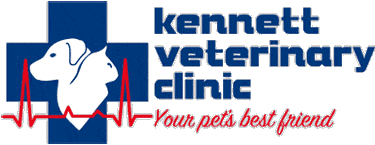My tag-line that follows my signature on Veterinary Information Network is “I’m lost, but I’m making good time.” When I am putting a puzzling case up for consultation, I have already done one of two things. One is, I’ve done everything I know how to do, and I’m still stumped. The second is, I’ve reached a crossroads in the diagnostic plan and I don’t want to put the patient through unnecessary testing. Therefore, I want some input into the best choice as I proceed.
After thirty-four years of doing this, I’m able to handle the majority of cases that walk through my door. On the other hand, I certainly still have not “seen it all” (and majority means “more than half”). Of course, it’s impossible to have the expert knowledge of a specialist in every field.
There are no “experts on everything”, though are some people who have that opinion of themselves.
Some things seem obvious. If I have a terrible eye problem, I want to see an ophthalmologist.
Some are not so obvious. If I go to my primary care doctor because I feel bad, I expect him to examine me and make a diagnosis that will enable effective treatment. When the physical exam and history don’t give
him enough information to make the diagnosis, I expect him to perform diagnostic testing.
If he still doesn’t know what is going on, I expect him to refer me to someone with more specialize expertise. I really don’t want him to just spitball it and prescribe some medicine just to get me out of the office.
While we are told that seventy percent of our patients will get well if we can manage not to screw them up (i.e. they don’t really need us), still there are those thirty percent that need help. If I’m one of those, I want the level of help that I need.
For the first two decades of my professional career, I didn’t have the option to refer many patients.
The nearest referral specialists were at the veterinary teaching hospital at the University of Missouri – three hundred miles away. Most of my clients couldn’t or wouldn’t make the trip. “What can you do here?” Well, I can do my best, but I don’t have the expertise and equipment of the specialists who are teaching at the veterinary school.
Because of this, I attempted procedures that I would rather have referred. Sometimes they turned out very well, and I learned some techniques that I never would have tried, had the referral option been available. Of course, sometimes they didn’t turn out so well, but with euthanasia being the only alternative, we gave it a shot.
I generally try to avoid catch-phrases like “paradigm shift”. So I won’t say that. I will say that today’s new veterinarians have a completely different mindset about the general practitioner’s scope of practice than we did, lo, these many years ago.
Back when dinosaurs walked the earth, a veterinarian was more or less expected to do it all. Come in from delivering a calf by C-section, diagnose a horse’s lameness problem, then perform orthopedic surgery to fix a dog’s fractured leg. I have known many veterinarians who did all that. Some managed to be better than
good at all of it. Most had their areas of strength and weakness, and eventually would shift their activities to their strengths. The problem was, you might be the only game in town. If you tell people that you aren’t a good man for their problem, you need to have a name for them to call. When that was not the case, you just had to be honest and say, “This is really not the best way to handle this case, but it is all I have to offer you. The animal really needs…”
The important thing was to do your best and be honest with the client. That hasn’t changed. What has changed is the increased availability of specialists, and the increased availability of attorneys.
Today’s veterinary students are encouraged to refer anything complicated to a specialist. The problem
is the definition of “complicated”. Where do you draw the line? When do you learn some new skill?
A new veterinarian has some of the same problems I did. Every case you see is your first one. I was on the phone back to my professors almost every day when I first got out on my own. The new generation also has the specter of being admonished to offer referral for almost EVERYTHING, lest one be liable
for a malpractice suit. The faculty put the fear of God into them on this subject.
I’m fortunate to have a group of referral specialists only ONE hundred miles away now, and they are some really good doctors. Still, they are a hundred miles away, and they aren’t cheap. That means that for
many complicated cases, I can’t put the monkey on somebody else’s back. I’m still in the position of having to do my best right here.
There is hardly a week that goes by that I am not emailing or telephoning more than one specialist about my cases. When I have reached my limitations, I know it, and I do my best to get more help for my patients.
What brings this subject to mind was an interesting experience I had this past week. I was called to testify in a neglect case involving an apparently starving horse. The horse was emaciated and very weak. It looked like a skeleton with skin. The owner had sought no medical attention for the horse, and stated that he STILL would not have done so, if not for pressure from the Sheriff’s department.
Now there are only two basic things that can be going on here. Either the horse didn’t get enough
nutritious food, or it had such a severe medical problem that the food could not be utilized. This is not rocket science. In either case, the horse’s care has been neglected. It’s a no-brainer.
In court, the defendant objected to my being called as a witness because I am not a specialist in equine medicine. He had been looking at my website and blog and found “my own admission” that I often consulted specialists when I had a case beyond my expertise. In his mind, that makes me unqualified.
By contrast, his defense was “I’ve done everything I know how to do, but the horse just keeps losing weight.” He did NOT seek help or advice, despite the obviously deteriorating situation. He just kept on doing “everything he knew how to do”, even though it was not working.
If he had spent half as much time researching how to care for his horse as he had on trying to undermine my credibility, he wouldn’t have been in court in the first place.
When your veterinarian says that he (or she) needs to consult a specialist, or wants to refer you to a specialist, I see that as the mark of a responsible doctor, not a declaration of incompetence. If I need a cardiac bypass, I don’t want my family doctor to learn on me.
Side note: The horse was confiscated and has been gaining weight, and is feeling much better since getting adequate feed in the last two week. There is good reason to hope for a happy ending here.

